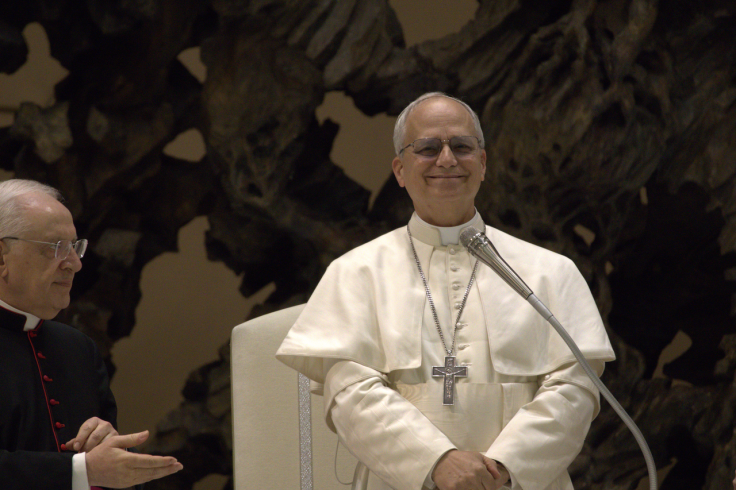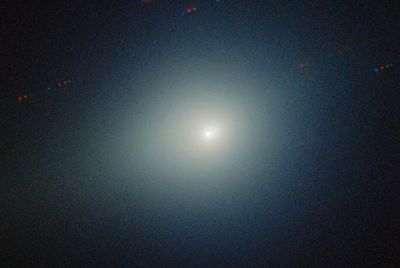Would the Vatican Baptise an Alien? Pope Leo's Astronomer Shocks with 'Yes' as Faith Faces ET Question
Pope Leo's new director of the Vatican Observatory says he would baptise an alien

Scientists have long wondered if there is such a thing as life beyond Earth and what might happen when such aliens make their way to our planet. One answer comes from the newly appointed astronomer by Pope Leo, saying that any aliens who come to Earth can be baptised.
In a report by the Daily Star, Father Richard D'Souza answered what might be one of the questions lingering in the minds of space enthusiasts who might also be spiritual. D'Souza was recently appointed by Pope Leo XIV as the new director of the Vatican Observatory in Castel Gandolfo near Rome. D'Souza accepted the possibility of finding extra-terrestrial life and its impact on religion and the history of mankind.
However, D'Souza said he would welcome aliens into the Catholic Church. When asked if he would do an alien baptism, D'Souza said yes.
'Yes, yes. Theology would have to reimagine itself and take into consideration these other beings. They are all part of God's creation,' said D'Souza.
'They would be children of God,' D'Souza continued. 'I believe in a benevolent creator. He is behind everything.'
While D'Souza noted that there might be some things along the way that must be overcome, to clear those would allow a baptism to happen.
'We do believe that baptism has to be in presence,' said D'Souza. 'The question would be how to reach them or how they would reach us. These are the practical problems to solve before we even talk about baptism.'
Born in India, D'Souza studied theology and philosophy before he was ordained in 2011 as a Jesuit priest. D'Souza also studied physics and a master's degree in Heidelberg University before pursuing a post-doctoral programme in Michigan University. He joined the Vatican Observatory in 2016 and has papers that were published in scientific journals and has an asteroid named after him, the D'Souza 27397.
Father D'Souza's New Role as Pope Leo's Astronomer
D'Souza described his new role in the Observatory as like that of an explorer. He explained the importance of addressing the issue of extra-terrestrial beings as more space organisations are on the lookout for signs of alien life outside the planet.
'I become a galactic archaeologist and I try to infer the past history of a galaxy,' said D'Souza, who said that boffins might be able to discover alien life, should it exist, in the next several decades. However, D'Souza said that whether that alien life could be intelligent is another question.
'We have historically looked for signals coming from outer space and over the last 30 years we have found none. None,' said D'Souza.
Pope Leo XIV Addresses Climate Change Skeptics
Earlier this month, Pope Leo also addressed those who remain skeptical of the issue of climate change, signaling his embracing of his predecessor's environmental legacy. The Pontiff presided over the 10th anniversary of Laudato Si, the ecological encyclical at a global gathering that took place south of Rome. Speaking to the 1000 representatives of environmental and religious groups in attendance, Pope Leo called on them to pressure their respective governments to take solid steps in mitigating the damages done to the environment.
Recalling his predecessor's text, Pope Leo said some leaders have chosen to 'deride the evident signs of climate change, to ridicule those who speak of global warming and even to blame the poor for the very thing that affects them most.'
'We cannot love God, whom we cannot see, while despising his creatures. Nor can we call ourselves disciples of Jesus Christ without participating in his outlook on creation and his care for all that is fragile and wounded,' said the Pontiff.
© Copyright IBTimes 2025. All rights reserved.





















